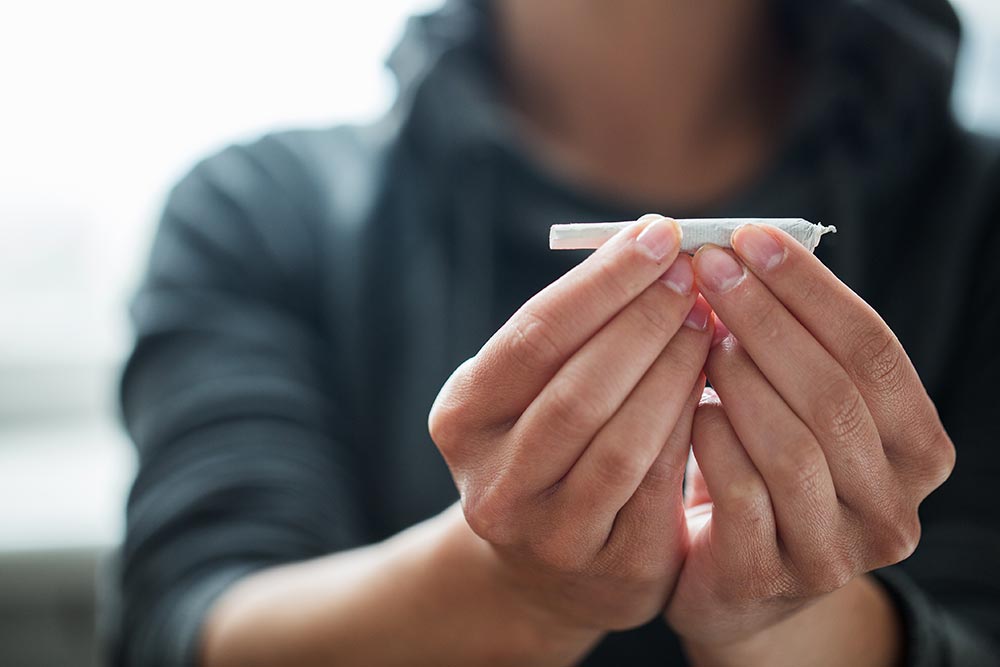States Consider Involuntary Commitment for Addicts

As the parent or loved one of a person who is addicted to drugs of any kind, their addiction can be both painful and worrying. Drug addicts often change their behavior, personality, and often act as though they don't care, but more importantly, they consistently put themselves at risk.
Drug addiction is an increasing problem in most of the United States, with deaths from drug related causes going up over 31% over the last decade in some states. The New York Times predicts that overdose related deaths rose by 19% between 2015 and 2016, for a record high of nearly 60,000 deaths – making overdose the leading cause of death of persons under 50 in the United States. Because of the increase in drug related deaths and injury, many states are taking measures to work to improve care options for family members and law enforcement.
As a family member or loved one, your goal is to ensure that the people you love are safe, and happy. Unfortunately, if family members are over 18, there hasn’t historically been a lot you can do. You can stage an intervention, try to convince your loved one to get help, or use other strategies to get them into rehab, but that's it.
Now, several states are considering new laws that would change this, enabling qualifying individuals to use involuntary commitment as a means of treating drug addiction.
Involuntarily Committing Teens Under 18
If your child or addicted teen is under 18 and they are addicted to drugs or alcohol, you can have them involuntarily committed in every state. Because you are speaking for your child, you can sign them into addiction treatment centers fairly easily. In most cases, all you have to do is sign paperwork, pay the fees, and drive your teen to rehab and your state will be compliant with your choice.
Once they turn 18, you will have far fewer options under most existing laws.
Current Laws for Involuntary Commitment
You can currently have an addicted loved one committed against their will in 37 states. However, regulations are often very strict, typically requiring that you provide evidence that the person is addicted to drugs or alcohol, and evidence that the person is either threatening harm to themselves or another person, incapable of not harming themselves if not detained, or incapable of providing themselves food and shelter. In the case of the latter, you must also prove that there are no adults capable of or willing to support this person before they can be detained.
Unfortunately, the lack of readily available commitment facilities often makes this choice difficult for many families.
New Laws Could Make Involuntary Commitment Easier
While involuntary commitment for addicts is currently available in some states under very strict circumstances, several are working on changing laws to make it significantly easier. These states include New Hampshire, Kentucky, Ohio, Florida, New Jersey, Pennsylvania, Washington and several others.
In 2015, Kentucky and Ohio legalized involuntary commitment, and Indiana quickly followed. Florida also quietly legalized involuntary commitment in 2016.
Florida's Marchman Act enables almost anyone with a knowledge of the person's impairment to file a petition. You can be a blood relation, family member, or a group of three people with knowledge of the person's impairment, and must only show that the person has lost the power of self-control in respect to substance abuse or are incapable of making rational decisions for their own care.
New Jersey has been attempting to pass a similar legislation, Assembly Bill 2067. However, this bill also allows police officers to detain anyone if they have reasonable cause to believe that person is in need of involuntary commitment.
In Washington, Senate Bill 5811 would enable officers to involuntarily commit individuals with 3 or more arrests related to substance abuse or who have 3 or more visible track marks.
Most of these measures would enable up to 90 days of involuntary inpatient or outpatient drug treatment depending on the severity of their impairment.
Addiction as a Mental Illness
The premise of most bills enabling involuntary commitment for addicts is that severe addiction is a form of mental illness. If a person is unable to care for themselves, poses a threat to themselves or to others, or is incapable of making rational choices, they are mentally ill and should be treated that way.
However, equating the two can be harmful. Most states have laws enabling family members to commit persons with mental illness for a period of 72 hours, during which time they will be reviewed to ensure that they don't need further care. This type of commitment can be dangerous for addicts because it's just enough time to start withdrawal without completing it, while lowering drug tolerance. The result could be a higher rate of overdose once they leave. In short, to be effective, involuntary commitment for addicts must be differentiated and given special treatment with detox and follow-up treatment to be effective or even helpful.
What Will Involuntary Impairment Mean for Addicts?
While, in theory, involuntary impairment has a lot of room to help addicts, especially when pushed by their family and loved ones, it can also be abused.
For example, some experts suggest that allowing police to commit addicts leaves room for abuse of the system – in which someone might be unfairly pushed into rehab. Others suggest that without the motivation to actually stop, forced withdrawal might not actually cure addicts of their addiction, simply reduce their physical tolerance. While it remains to be seen, addicts leaving rehab after a forced stay might want to go back to drugs or alcohol but without their original tolerance, might overdose more quickly.
Finally, because many states have too few rehabilitation centers to handle the possibly very large influx of patients resulting from changes to these laws. This means that in practice, addicts could have much shorter stays, so that they only receive the benefits of detox, without therapy and skills building which help traditional rehabilitation centers to succeed.
Getting Help for Your Loved One
Whether you live in a state that currently allows involuntary commitment for addicts or live in one where it is not possible for an adult, you can still work to get them treatment.
- Educate yourself. Learn about addiction and how it works. Participating in support groups like Al-Anon or similar can help a great deal.
- Don't make threats or nag. Creating a sense of resentment against getting help will make it more difficult for that person to want to seek help.
- Be supportive. Offer to help but also be there emotionally. Don't help with money.
- Create a plan. Holding an impromptu intervention can be more damaging than not holding one at all. An effective intervention requires offering support and love, not anger. You should have a rehabilitation facility in mind and a plan to support that person and get them there.
- Don't judge. Creating a sense of resentment or anger will hurt your cause
- Get help immediately. If your loved one or family member chooses to go into recovery it is crucial that you get them there as quickly as possible.
Not everyone will go into addiction when you ask them, not everyone will be willing to change, and sometimes there is nothing you can do. However, you can be there, be supportive, and have options in mind so that you can get them help when they are ready, even without involuntary commitment.
The Anaheim Lighthouse is a modern and effective addiction treatment center in Southern California. To talk to us about treatment options at our affordable drug and alcohol rehab that fit your needs, call (844) 494-4939.















